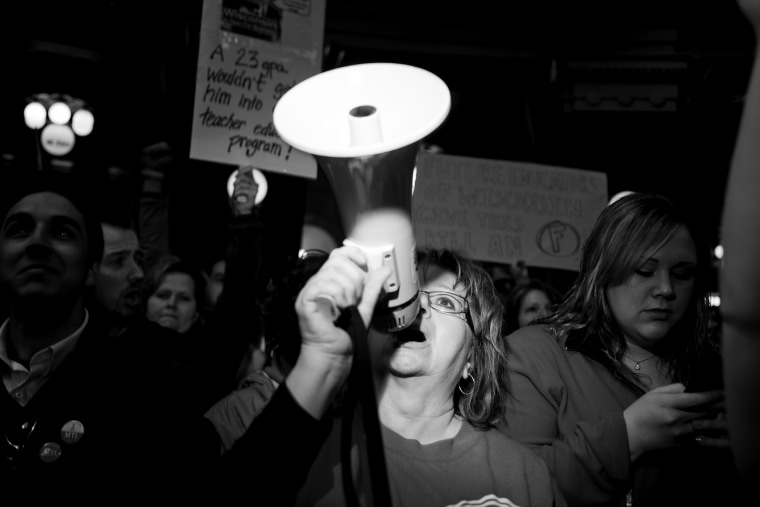The Wisconsin Supreme Court has finally weighed in on Gov. Scott Walker's controversial anti-collective bargaining law, and the results were not favorable for the state's labor movement. By a vote of 5-2, the court upheld the entire law as constitutional, overturning a September 2012 circuit court decision that held that the law violates both the U.S. Constitution and Wisconsin's constitution.
The 2011 law, known as Act 10, dramatically restricts the range of issues over which most public employee unions are permitted to collectively bargain. When the bill was first introduced in the state legislature, it triggered massive demonstrations outside the state capitol. The protests and subsequent passage of the bill elevated Gov. Walker, a Republican, into becoming a national figure. He is now a rumored contender for the 2016 Republican presidential nomination.
"Act 10 has saved Wisconsin taxpayers more than $3 billion," said Walker in a statement reacting to the Wisconsin Supreme Court's ruling. "Today’s ruling is a victory for those hardworking taxpayers.”
For Wisconsin's embattled labor movement, the ruling was just the latest in a series of defeats. In 2012, Scott Walker survived a labor-led attempt to unseat him a recall election. The state supreme court's decision comes after a federal appeals court also upheld Act 10's legality. Organized labor's next chance at getting rid of the legislation is to replace Walker with an anti-Act 10 Democrat in the upcoming elections.
"At this point the focus is on elections coming up in November," said Kim Kohlhaas, president of the teachers' union AFT-Wisconsin.
Walker, who is now running for reelection, faces a tough challenge from Democratic candidate Mary Burke. According to the Real Clear Politics average of recent polling data, Burke is within 1 percentage point of Walker, 47% to 46.3%.
